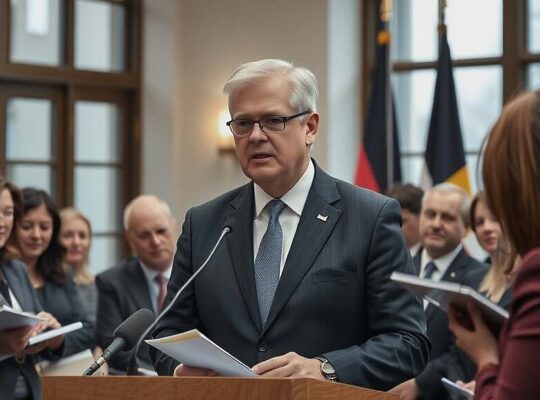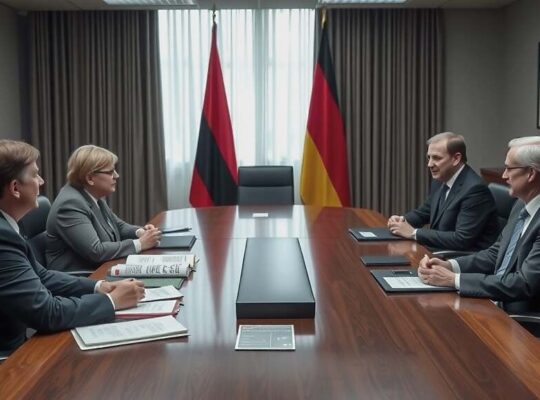Berlin has signaled a cautious approach to the burgeoning “peace plan” for the Gaza Strip, explicitly ruling out the acceptance of Hamas members, despite the proposal reportedly including provisions for the group’s free departure. The stance, revealed by Deputy Government Spokesman Steffen Meyer, highlights a deepening political tension surrounding the fragile negotiations and Germany’s role in their aftermath.
While Chancellor Scholz has pledged both political and humanitarian assistance to the region, officials have emphasized that this support will be limited to immediate relief efforts. Meyer’s statement effectively draws a line, suggesting a pragmatic distancing from any potential integration of Hamas, a group classified as a terrorist organization by numerous nations, into German society. This move aims to preempt criticism and political backlash, reflecting the sensitivity surrounding engagement with entities deemed to be involved in acts of terrorism.
Germany is actively collaborating with Egypt to organize a Gaza reconstruction conference slated for the coming weeks in Cairo. A spokesman for the Foreign Ministry framed this as an “offer” extended to other nations, implying a desire for broad international participation in the mammoth rebuilding effort. This collaborative approach underscores Germany’s ambition to lead the international response, but also acknowledges the necessary involvement of key players like Israel and the United States. Close coordination with these actors is reportedly underway, illustrating the complex diplomatic dance required to navigate the volatile situation.
Initial humanitarian aid, amounting to €29 million, is being released as an ad-hoc emergency measure to alleviate the most pressing needs. However, officials have stressed that the ultimate cost of Gaza’s reconstruction remains largely unpredictable. This deliberate understatement appears intended to manage expectations and avoid committing to substantial long-term financial obligations before a more stable and sustainable political settlement is established. The careful calibration of Germany’s involvement points to a strategy of measured engagement, balancing humanitarian concerns with political realities and domestic considerations.












